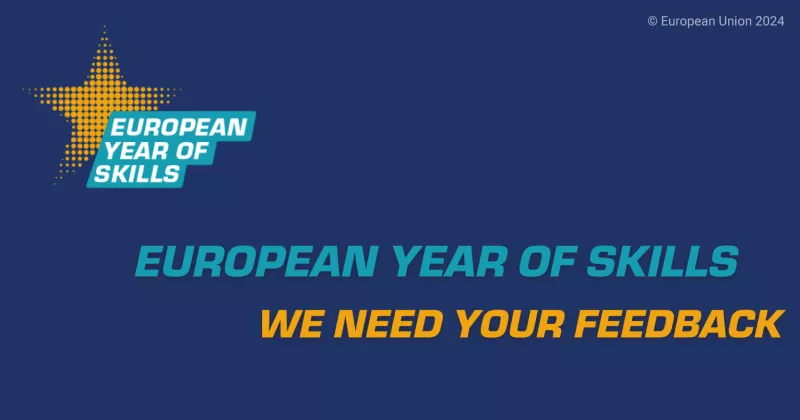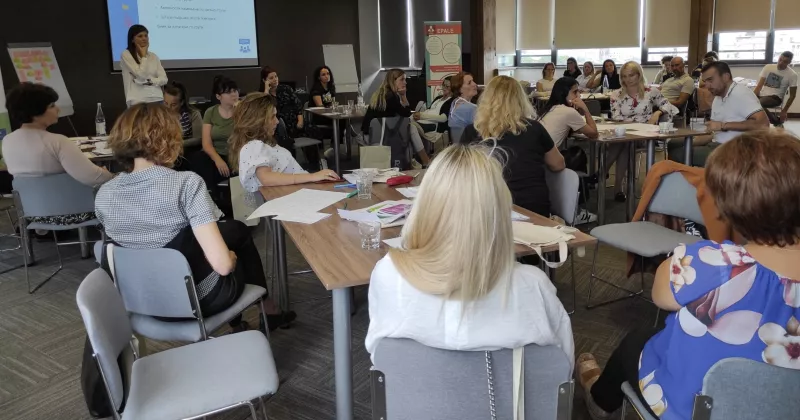LESSONS FROM A DOCUMENTARY: PELIN ESMER’S THE PLAY

Do you think adult education is something just about giving seminars to adults at work which they mostly attend by force? Because I doubt that. If we are looking for an authentic source, we may try something artistic called life. Because living has been the most practiced one among all of the forms of art. It is one of the richest sources for an adult or an adult educator because it is being full of experiences, causes, effects, and most importantly the facts. That is what Pelin Esmer, a woman director who filmed “The Play” did.
Pelin Esmer’s first feature-length film was a documentary titled The Play (Oyun, 2006) which follows the creation and staging of a theater play called The Outcry of Women! (Kadının Feryadı!), written and performed by nine women who live in a village in the Taurus Mountains and spend their days working in the fields, on construction sites, or at home.[1] This documentary is a very sincere example of an adult learning process through life experiences.
Firstly, when one looks at the characters of the documentary, it can be easily seen that the main characters are nine women who struggle in different conditions. As Pelin Esmer heard that these women had an intention to make a drama play in the village by themselves, she thought it would be a great idea to observe, analyze and especially learn so much from them. Because they are women who have tons of problems both at work and at home such as domestic violence at home, poverty, difficult working conditions, gender inequality in almost every area they are in. From this aspect, we can call the characters as a disadvantaged group. Different from the other adult groups, disadvantaged ones have some other features. To illustrate, they tend to be more closed to the changes because of the prejudices they have learned before. Because of the hidden oppression of patriarchy in their village or the poor economic conditions make them think like ‘others’. For example, making a drama is something very hard and high-level activity to do for some women at first. They mentioned, “They can’t do it.” But they do not know why they cannot. Also, they are likely to believe in fate which causes them not to try to change their cases. In the end, this will be one of the major achievements of women. Because they will see there is something they can change for their lives. And, they generally see things, not in a big picture but personal. While discussing their problems in a small talk they do in the documentary, they will realize domestic violence or oppression is not special for them. It is a part of a bigger system and it is not their fault and not because of their unchangeable fate. Many observations on disadvantaged people can be given at this point but the documentary shows us some of our harmless prejudices are wrong and not suitable for every case we face.
Another lesson that can be understood from this documentary is the idea of writing a play and performing it is something game-changing not only for this group but also for the people they live with. As we all know from Freire, critical learning spaces should be created for transformative learning for raising the consciousness. But in this documentary, we see that these women who even do not know who is Freire created their own critical learning spaces such as making a drama or role-playing with an adult group which is a widely popular technique in adult teaching. By using this technique, both while and after they have learned so many things that may not be able to teach by an educator intentionally. While this process of making a drama, they could realize each other and especially themselves intensively. Through this process, lots of problems occurred and it shows them their sincere fear, passion, likes and dislikes, and true hidden emotions of themselves which makes them know themselves in better content. Although they know each other already for years-they even grow up together- they see the hidden parts under the iceberg. Accordingly, with the fact that knowing something leads people to understand each other, they learn to understand other people and think about ‘the other’. This sense of empathy also helped them perform their roles in their play “The outcry of women” better. As we know role-playing and drama raise the consciousness of understanding one’s self and the other, drama’s effects on the women easily can be seen in this context. To illustrate, in the play, one of the villager women took place of a man by transforming her look. While she is playing a male role, she can put herself in that man’s shoes. There is no doubt that it does not need to be reversed gender roles. After the play, all women agreed on the positive changes that happened to them.
Finally, in the documentary, there are some lessons for adult educators in the context of the dialogue between the observer or the facilitator and the group. In one of her interviews[2], Pelin Esmer says that they sewed a shalwar traditional baggy trousers usually worn by villagers- and she found this gesture kind and found the shalwar so comfortable that she wore it during the shootings and this shalwar makes the dialogue even easier. Because that was the symbol of the sentence: “I’m one of you” As she said strikingly that dress code was a sign of different dynamics for the ones who live in the village. Because Pelin Esmer was wearing trousers and she had a different lifestyle and background from the others. All these urban and rural differences between them could have made them think like “She just came here to see some exotic, rural life and observe our real-life struggles.” But the authenticity and sincerity of the director show us this kind of factors play an important role in the dialogue with the group. Because raising consciousness is not something anyone can give. It can be only experienced by themselves either with help or without help. An adult educator who wants to work with a disadvantaged adult group should be aware of the prejudices or backgrounds of the group has. Knowing the group can help the educator to find the most suitable roles for herself like initiator, opinion seeker, the energizer, encourager, harmonizer or group-observer as Brid Connolly said in her book[3]. Also in the same interview, what Esmer said sums the relationship between the group and her. She said she wondered who they are exactly and wanted to know them as a person. For her, they are way beyond just being characters of the movie. We can easily see this sentence and the strong dialogue after the part of the documentary which women tell each other even most private stories of them consisting of their relationship between their husbands, the domestic violence they are subjected or the heartbreak they had when their family didn’t let them go to school and instead of it, sending them to work in a farm in front of the camera and of course Esmer, the director. The film crew, women, and lastly with the result of this journey, they together experienced the importance of solidarity, constructing a humanistic dialogue anywhere. This can be one of the most important lessons that can be taken from this movie.
To sum up, as it is understandable from these lessons, for the ones who interested and working in the field of adult education can benefit from everything which is a product of real-life and this documentary filmed in a village in the Taurus Mountains made in fifteen years before still gives the key points for another art form which called education.
For further information about the film: http://pelinesmer.com/portfolio/oyun/
[1] Taken from https://www.istanbulmodern.org/en/cinema/past-programs/rendezvous-with-directors-7-pelin-esmer_2397.html
[2] The interview was reached from the link: https://web.itu.edu.tr/calkivik/pelin.htm




